The Churn
Butter.ATL Talks to A’Ziah “Zola” King About Making Her Movie, Why Sex Workers Deserve a Voice, and Why She Keeps Coming Back to Atlanta
Mike JordanJune 30, 2021
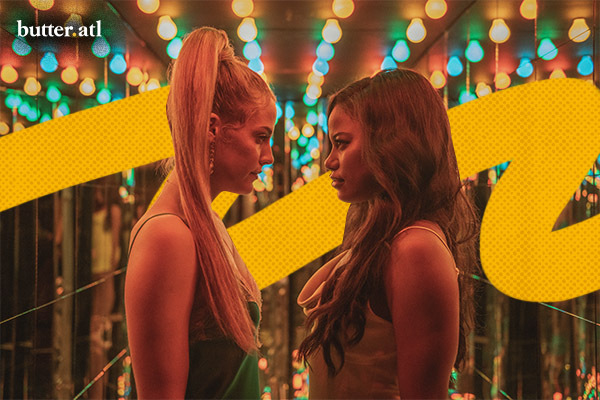
Your timeline is probably bubbling with news about the movie Zola, which hits theaters today.
The film, produced by buzzy Hollywood production company A24, is a visual representation of a story told by A’Ziah “Zola” King, a Detroit native who grew up in Atlanta, via an infamous Twitter thread. Those who remember the super-viral social media moment in October 2015 will surely recall the break-the-internet energy of Zola’s retelling of the experience.
If you missed it, you can read it in full here.
To summarize for those who’ve forgotten the tale, Zola whimsically took a road trip to a Florida strip club, on the invitation of a white female stripper she’d met while working as a server at a Detroit Hooters restaurant, to make quick money.
The stripper friend turned out to be a sex worker, and Zola found herself temporarily stuck in the Sunshine State with her new friend Jessica (whose name is changed to Stefani in the film), along with Stefani’s boyfriend and her pimp, with the demand that the two ladies earn money before they drive back home. Wildness, including an apparent shooting, ensued.
Since that mega-viral moment, Zola, who now lives in Atlanta, has been on a different sort of journey. To become a movie, Zola’s story has taken all sorts of winding roads, with a variety of people wanting to be involved.
That has included Hollywood big shots (including now-cancelled actor James Franco), as well as a Rolling Stone journalist, who is neither Black nor named Zola, yet somehow was able to wiggle himself into becoming an executive producer for the movie.
We won’t get into the obvious and nauseating but continuously forgiven theft of Zola’s story. Several other publications have already pointed out how this process mimics the usual co-opting of and profiteering from Black culture by non-Black culture vultures.
But in short, shouts out to writer David Kushner for doing the hard work of taking Zola’s story and getting paid not only by a national publication but also a Hollywood film studio just for being quick to seize an opportunity. And kudos to almost-director James Franco for originally planning to work with two other white men to tell a young Black woman’s story about taking a “hoe trip” with a violent Nigerian pimp. I’m sure that would have turned out just fine.
Protect your neck, Black creators.
The good news is that the real Zola is now in position to profit from her intellectual property. Sure, her credit and compensation were eventually worked into the contracts, but only after the exit of Franco set in motion the hiring of a Black woman director named Janicza Bravo, who cowrote the screenplay with queer Black playwright Jeremy O. Harris.

Credit: Mike Lovehall
Not only did Bravo make sure Zola got more money, an executive producer credit, and had more input than what Franco reportedly offered, but Zola got a book deal to tell the story, called The Story, with help from Bravo and writer Roxane Gay.
Seeing the tweeted story in motion picture form is trippy. There’s a surrealness in the way it’s told, with flickerings of narration from Zola, and strange pacing that is clearly meant to match the feeling we all felt as each tweet in the 2015 thread revealed more and more random craziness.
True to the situations presented in its original telling, the story of Zola is sort of like if Girls Trip was directed by Stanley Kubrick. There are moments that just pop out, including a weird accent transition from Stefani’s pimp, X, the same way things happen for no reason for sex workers or those who work in adult entertainment. HR doesn’t exist for lapdancers. Sexual harrassment, threats of violence, and a general sense of self-reliance stemming from the lack of protection, are parts of the game, and the game is grimy.
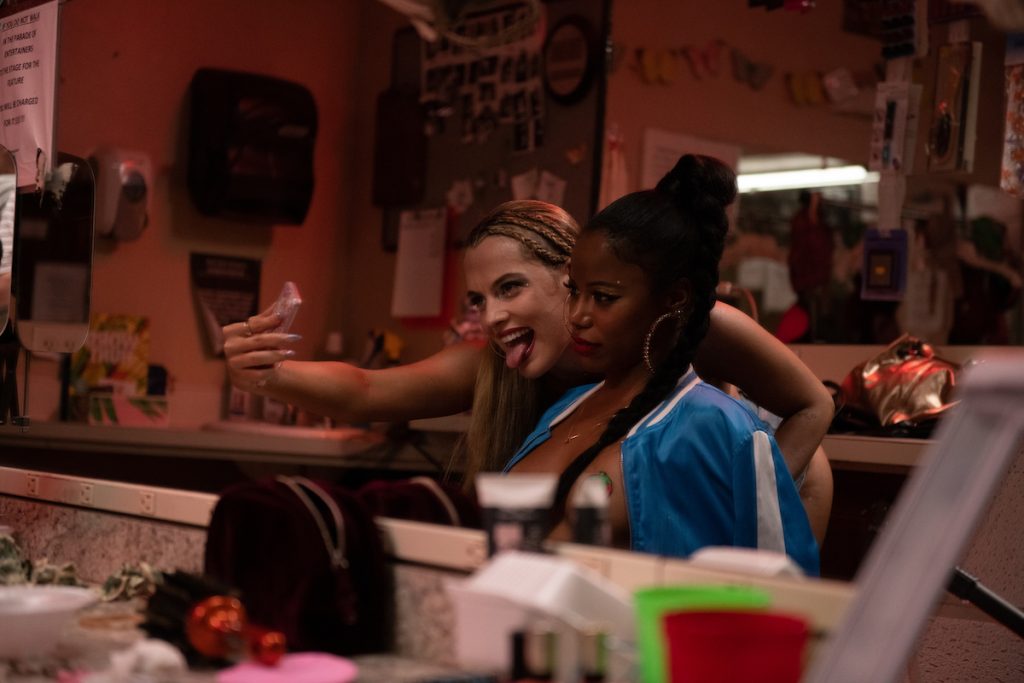
Atlanta knows adult entertainment very well. We’ve not only tolerated but celebrated our strip clubs for longer than anybody reading this has been alive. Nudity ain’t nothing new on this side.
But Zola, with her effortless wisdom and whip-smart understanding of who she is and what she wants to say, represents more than just a funny and shareable moment of yesteryear internet ratchetness. This is evident not only in the down-to-earth, call-it-like-it-is demeanor that cuts through when she’s actively talking to her social media followers, but also in the way she is presented to the audience by the beautiful and talented actor Taylour Paige, and also in one-on-one conversation.
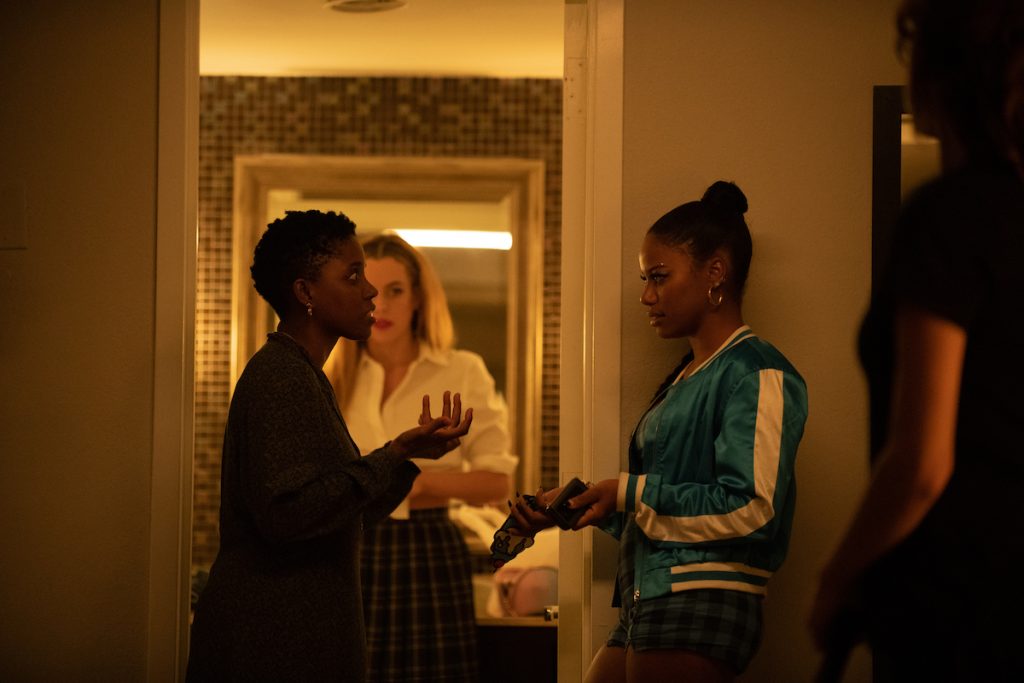
We talked to A’Ziah, a.k.a. Zola, on the eve of the movie’s widescale release today. Here’s what she had to say about Atlanta, which she calls her “second home,” advice and advocacy for sex workers, and what might be next.
“At this point in my life, I’m open to anything,” Zola says. “And now I have the backing and credit to jump into these things more consistently. I’m hoping that comes to fruition.”
Writing, particularly music and poetry, is something she enjoys. She’s working with a producer and recording music here in Atlanta, which she sees as adding on to her creative expression. But Zola says hasn’t stepped away from what put her on the big screen.
“I’m still active in my sex work,” she says without a hint of reservation. “So I would love to be a voice for that community — the dancer community, strip clubs and the whole culture of Atlanta in itself. Now the conversation is talked about a lot more often. It’s a little more normalized and not as taboo. I think people will take to this movie, and the lessons and conversations within it, a lot better than they would have in 2015.”
Zola doesn’t glamourize sex work when she talks about it, but she certainly doesn’t shy away from addressing it. From her perspective, it’s a job that people like her do, and it is misunderstood mainly because people aren’t talking about it enough.
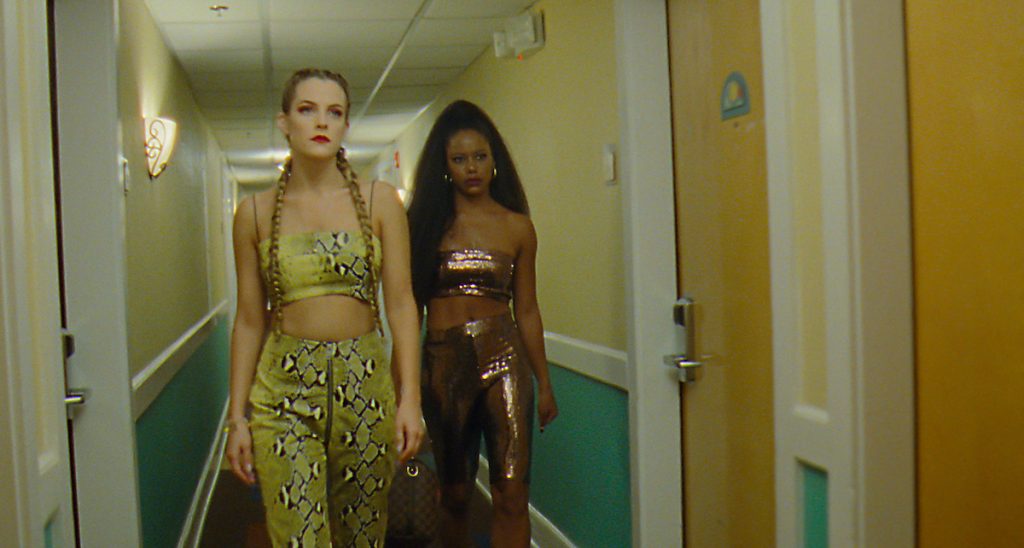
“Sex work is not all good, and it’s not all bad. Also, there’s a thin line between sex work and sex trafficking, and I think sex trafficking is the reason so many people are scared to speak proudly about sex work. They don’t really understand fully how to differentiate the two. The key here is to build up that conversation.”
Zola thinks the movie is coming out at a perfect time to show the authenticity of the worlds she has occupied. She hopes the movie will give viewers a plain example of how the two worlds intertwine, even though she says they are fully separate.
“We love dancers; that was the fun part of the film. But then things turn dark, into the sex trafficking conversation. That’s where the strong-arming and dark energy comes from. I think it’s a perfect time to show the authenticity of that.”
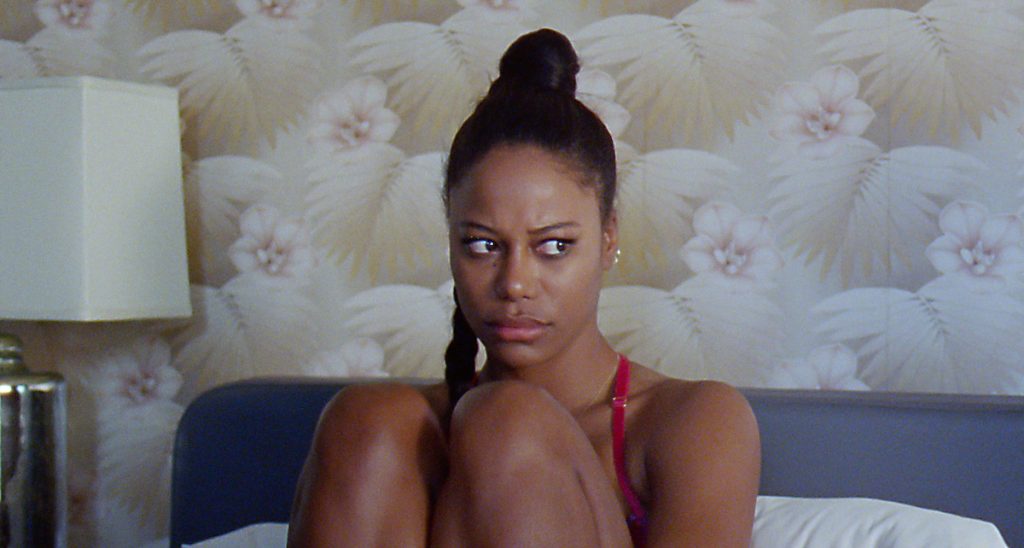
Authenticity, particularly related to culture, is why she chooses ATL as her home. She says she moved to L.A. in 2015, not long after the viral Twitter thread, and was there for about a year and a half, but the opportunity felt better, and more like home, in Atlanta.
“Everything just feels in place in Atlanta,” says Zola. “It’s like every piece of me kinda lands in Atlanta,” she says. “There’s so much culture. For a very long period of time, including now, Atlanta dominated the music industry. There’s so much art and culture in so many avenues. It can be home to anybody, and I think that’s why the city has become what it is.”
She says that the business-minded nature of Atlanta also factors into her natural connection to the city. Being around like-minded individuals, she said, makes her feel at home in The A. She feels more comfortable in spaces where people look like her, and Atlanta’s cultural designation as “Black Hollywood” was a natural fit.
“When it comes to being a Black creative, and being a Black woman, a Black sex worker, I feel like Atlanta gives me a sense of community that I probably would never get anywhere else.”
That business mentality, mixed with southern hospitality and possibilities for creative collaboration, is something Detroit couldn’t provide, she says. “Because back home, yes it’s business, and you can make shit happen in Detroit, but it’s always a competition, because people feel like there’s only so much space. In Atlanta it feels like there’s space for everybody. People are willing to help you. I think, you know, Atlanta would be the most comfortable place to do it — at least for me.”
It also doesn’t hurt that we have world-famous strip clubs in Atlanta. “I like my play, and Atlanta has a lot of play. But I think it’s very well-balanced.”
Zola is aware that the film might not be for everyone. I ask her what she would say to those who might see the film and walk away less than impressed by who she is and what she stands for.
“It’s nothing but my truth. I didn’t lie, and I can’t really give anything else besides my experience. If the way that I express, or the way that I decided to cope with trauma is through dark humor, that’s just what it is.”
A’Ziah “zola” king

It’s no different from other forms of art imitating life, Zola believes. Women continue to reclaim power from patriarchal societal structures by freeing themselves from false morality, and it’s not like men haven’t been doing this forever without asking permission.
“This film is kind of hip-hop, right? I mean, like, rappers talk about things all the time that shouldn’t be glamorized, but we still nod our heads to it, and it’s still a piece of art, and it’s still valid, and these experiences still matter. My story being my story, it’s just what I experienced. So, no, it’s not cut and dry. It’s not glamorous. But it’s also not negative. It’s just life.”
It’s obvious from Zola’s unbothered voice and clarity of thought that she accepts the reality that not everyone will come away from watching the movie with admiration her resilience, wisdom and level-headed personality, even though it’s due. Still, she says, that doesn’t change the facts.
“I would just tell people, you know, authenticity is key. It wouldn’t be what it was had I not experienced what I did, and been as open and honest about it. So that’s culture. That’s Black culture. That’s the way it works. That’s what we do. We create through experience, and that’s really all that I did. Hopefully that’s what shows and that’s the takeaway.”

